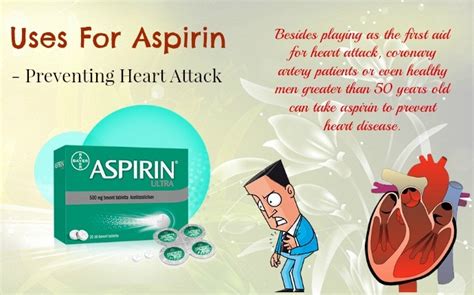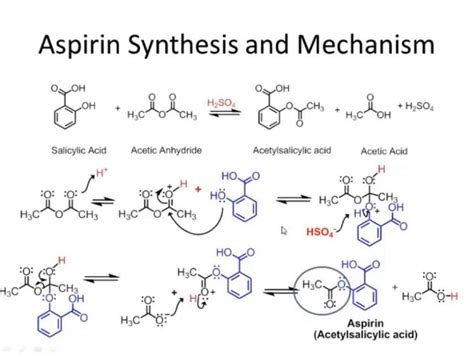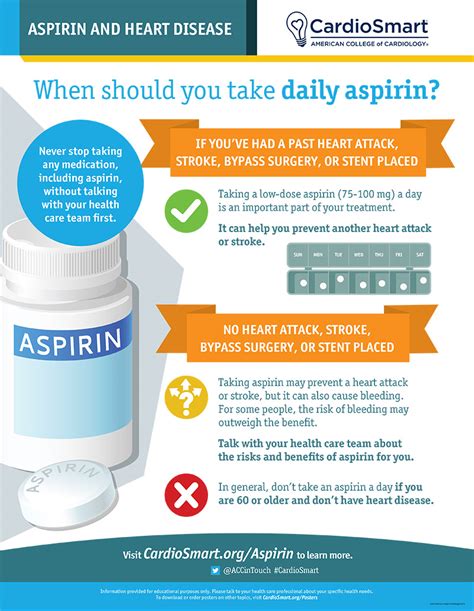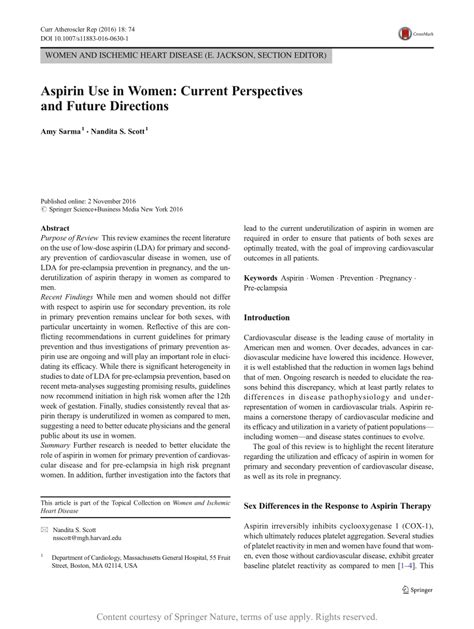Intro
Learn how aspirin helps prevent heart attacks, reducing cardiovascular risk with antiplatelet effects, and understand its role in acute myocardial infarction treatment and coronary artery disease management.
The role of aspirin in preventing and treating heart attacks has been a subject of interest for decades. Heart attacks, also known as myocardial infarctions, occur when the blood flow to the heart is blocked, causing damage to the heart muscle. This condition is a leading cause of death worldwide, and finding effective ways to prevent and treat it is crucial. Aspirin, a common over-the-counter medication, has been found to have a significant impact on heart health, particularly in relation to heart attacks.
The importance of understanding the relationship between aspirin and heart attacks cannot be overstated. With heart disease being a major health concern globally, any intervention that can reduce the risk or severity of heart attacks is valuable. Aspirin, with its antiplatelet properties, has been shown to play a role in preventing the formation of blood clots that can lead to heart attacks. This makes it a potentially lifesaving medication for individuals at risk of or experiencing a heart attack.
The mechanism by which aspirin works to prevent heart attacks is through its inhibition of platelet aggregation. Platelets are components of blood that form clots to stop bleeding when a vessel is injured. However, in the context of heart disease, these clots can form inappropriately and block blood vessels, leading to a heart attack. Aspirin interferes with the production of thromboxane A2, a chemical that promotes platelet clumping. By reducing the ability of platelets to aggregate, aspirin decreases the risk of clot formation and, consequently, the risk of a heart attack.
Benefits of Aspirin for Heart Attack Prevention

The benefits of aspirin in preventing heart attacks are well-documented. Studies have shown that regular aspirin use can significantly reduce the risk of a first heart attack in individuals at high risk of cardiovascular disease. This is particularly true for those with a history of heart disease, high blood pressure, high cholesterol, or diabetes. Aspirin's role in secondary prevention, or preventing subsequent heart attacks in individuals who have already experienced one, is also established. By reducing the risk of clot formation, aspirin helps to prevent further heart damage and improve outcomes for patients with a history of heart attacks.
Primary Prevention
Primary prevention refers to the use of aspirin to prevent a first heart attack in individuals who have not previously experienced one. The decision to use aspirin for primary prevention should be made on an individual basis, considering the person's risk factors for heart disease. While aspirin can be beneficial for those at high risk, it is not recommended for everyone due to the potential for side effects, such as gastrointestinal bleeding.Secondary Prevention
Secondary prevention involves the use of aspirin to prevent subsequent heart attacks in individuals who have already experienced one. The evidence supporting the use of aspirin in secondary prevention is strong, with studies demonstrating a significant reduction in the risk of recurrent heart attacks and death from cardiovascular causes.How Aspirin Works

Aspirin's mechanism of action is based on its ability to inhibit the enzyme cyclooxygenase (COX), which is involved in the production of prostaglandins and thromboxane. By inhibiting COX, aspirin reduces the production of thromboxane A2, a potent stimulator of platelet aggregation. This antiplatelet effect is the primary reason for aspirin's use in preventing heart attacks.
Platelet Aggregation
Platelet aggregation is the process by which platelets clump together to form a blood clot. This process is crucial for stopping bleeding when a blood vessel is injured but can also contribute to the formation of harmful clots that block blood vessels and lead to heart attacks. Aspirin's inhibition of platelet aggregation makes it an effective tool for reducing the risk of these harmful clots.Clinical Evidence
Numerous clinical trials have demonstrated the efficacy of aspirin in preventing heart attacks. These trials have shown that aspirin can reduce the risk of a first heart attack in individuals at high risk of cardiovascular disease and can also reduce the risk of recurrent heart attacks in those who have already experienced one. The clinical evidence supporting the use of aspirin for heart attack prevention is robust, making it a cornerstone of cardiovascular disease management.Risks and Side Effects

While aspirin is generally safe and effective, it is not without risks and side effects. The most common side effects of aspirin include gastrointestinal upset, such as stomach pain and nausea, and an increased risk of bleeding. This risk of bleeding is a significant concern, particularly for individuals with a history of bleeding disorders or those taking other medications that increase the risk of bleeding.
Gastrointestinal Risks
Aspirin can cause stomach irritation and increase the risk of gastrointestinal bleeding. This risk can be mitigated by taking aspirin with food or using enteric-coated aspirin, which is designed to dissolve in the intestine rather than the stomach.Bleeding Risks
The antiplatelet effect of aspirin increases the risk of bleeding, particularly when used in combination with other anticoagulant medications. Individuals taking aspirin should be aware of this risk and seek medical attention immediately if they experience any signs of bleeding, such as easy bruising or bleeding that does not stop.Guidelines and Recommendations

Various health organizations have issued guidelines and recommendations for the use of aspirin in preventing heart attacks. These guidelines generally recommend aspirin for individuals at high risk of cardiovascular disease, including those with a history of heart disease, diabetes, high blood pressure, or high cholesterol. The decision to use aspirin should be made on an individual basis, considering the person's risk factors and potential benefits and risks.
American Heart Association (AHA) Guidelines
The AHA recommends aspirin for the primary prevention of heart attacks in individuals at high risk of cardiovascular disease. The AHA also recommends aspirin for secondary prevention in individuals who have already experienced a heart attack.United States Preventive Services Task Force (USPSTF) Recommendations
The USPSTF recommends aspirin for the primary prevention of heart attacks in adults aged 50 to 59 years who have a 10% or greater 10-year cardiovascular risk. The USPSTF also recommends aspirin for secondary prevention in individuals who have already experienced a heart attack.Practical Considerations

When considering the use of aspirin for heart attack prevention, several practical considerations must be taken into account. These include the individual's risk factors for heart disease, potential benefits and risks of aspirin therapy, and the need for regular monitoring and follow-up.
Risk Assessment
A thorough risk assessment is necessary to determine whether aspirin is appropriate for an individual. This assessment should consider the person's medical history, lifestyle factors, and other risk factors for heart disease.Monitoring and Follow-up
Regular monitoring and follow-up are essential for individuals taking aspirin for heart attack prevention. This includes monitoring for signs of bleeding, gastrointestinal upset, and other potential side effects, as well as regular assessment of cardiovascular risk factors.Future Directions

The role of aspirin in preventing heart attacks continues to evolve as new research emerges. Future studies are needed to further elucidate the benefits and risks of aspirin therapy, particularly in different populations and in combination with other medications. Additionally, the development of new antiplatelet agents and other cardiovascular therapies may offer alternative or complementary approaches to heart attack prevention.
Personalized Medicine
The concept of personalized medicine, or tailoring medical treatment to an individual's unique characteristics, is becoming increasingly important in the prevention and treatment of heart attacks. Aspirin therapy may be optimized by considering an individual's genetic profile, medical history, and lifestyle factors.Emerging Therapies
Several emerging therapies, including new antiplatelet agents and other cardiovascular medications, may offer improved efficacy and safety compared to aspirin. These therapies are being studied in clinical trials and may provide alternative or complementary approaches to heart attack prevention in the future.What is the recommended dose of aspirin for heart attack prevention?
+The recommended dose of aspirin for heart attack prevention varies depending on the individual's risk factors and medical history. Typically, a low dose of 75-100 mg per day is recommended.
Can aspirin be used for primary prevention in individuals without a history of heart disease?
+Yes, aspirin can be used for primary prevention in individuals without a history of heart disease, but the decision to use aspirin should be made on an individual basis, considering the person's risk factors and potential benefits and risks.
What are the potential side effects of aspirin therapy?
+The potential side effects of aspirin therapy include gastrointestinal upset, such as stomach pain and nausea, and an increased risk of bleeding.
In summary, aspirin plays a significant role in preventing heart attacks, particularly in individuals at high risk of cardiovascular disease. While aspirin is generally safe and effective, it is not without risks and side effects, and the decision to use aspirin should be made on an individual basis. By understanding the benefits and risks of aspirin therapy and considering the latest guidelines and recommendations, individuals can make informed decisions about their heart health and take steps to reduce their risk of heart attacks. We invite readers to share their thoughts and experiences with aspirin therapy and to explore the resources available for learning more about heart health and disease prevention.
